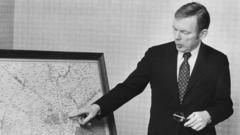In the 1960s and 70s, Dolan of Teleprompter Corporation introduced cable television to the urban environment of New York, marrying technology with the diverse entertainment needs of its residents. He initially focused on hotels, providing specialized programming that predictably drew local viewers' curiosity. His bold venture involved wiring buildings in Manhattan, which included a game-changing arrangement to broadcast Knicks and Rangers playoffs.
In 1972, he further established his legacy by launching Home Box Office (HBO), diversifying the viewing experience with a robust selection of films and exclusive content. His keen business acumen was evident when he orchestrated a sale of his cable service and HBO in order to concentrate efforts on building Cablevision, a company that eventually provided cable and internet services to millions in the northeast.
By 2015, the Dolan family sold Cablevision to the European firm Altice for around $18 billion, solidifying their major player status in the media economy. Despite his success, the Dolans garnered mixed sentiment among New Yorkers, often embodying the frustrations related to the performance of their basketball franchise, the Knicks, and the sometimes contentious relationships with networks affecting major broadcasts.
Upon his passing, Forbes listed Charles Dolan's net worth at $5.4 billion, illustrating his profound financial success in conjunction with his influential legacy in American television history. Today, his contributions to cable and media continue to resonate, reflecting the evolution of entertainment in an increasingly digital age.





















